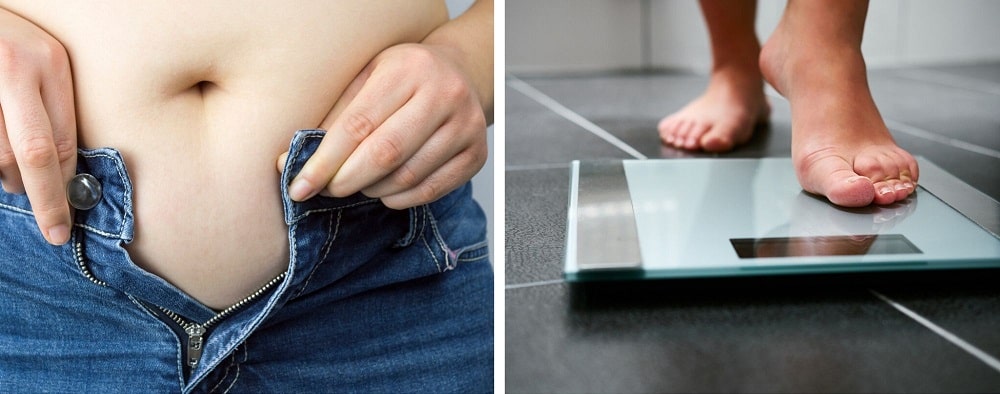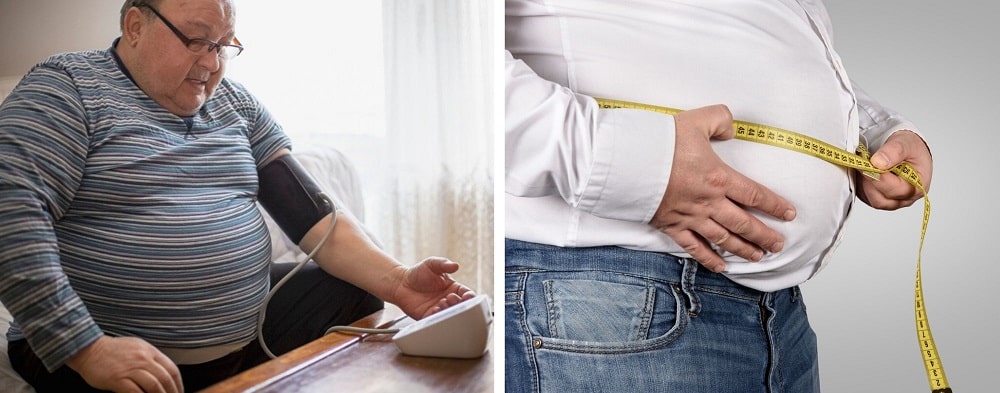Table of Contents
The body’s many hormones control a variety of functions, some, like growth hormone (GH), influencing weight and metabolism. Adults with low GH levels often find increased abdominal fat to be a problem for no apparent reason. It is one thing to overeat and gain weight knowingly. However, when the waistband expands with no evident cause – hormones may be to blame. That is the reason for this article on HGH replacement therapy and weight loss – to help explain why fat increases while muscle mass decreases. We will cover why low GH levels often lead to adult obesity and insulin resistance, as well as the pros and cons of using human growth hormone for weight loss.
What is growth hormone, and how does its decline lead to weight gain?
Growth hormone, also known as somatotropin, is one of the body’s essential chemical messengers. When the pituitary gland releases GH into the bloodstream, it races to its many receptor cells to engage actions such as cell reproduction, insulin growth factor 1 release, brain stimulation, and metabolic activities.
It is the metabolic actions of growth hormone that can lead to fat loss or retention as follows:
- Helping make the body’s cells more sensitive to the effects of insulin, so that blood sugar moves into the cells. Insulin levels tend to increase as GH levels decline, often leading to insulin resistance and higher than normal blood glucose levels. GH has anti-insulin activities that can also help enhance the synthesis of glucose in the liver which aids in carbohydrate metabolism.
- Increasing the breakdown of triglycerides (stored fat) for energy while improving adipocyte (fat cells) oxidation.
- Stimulating the protein anabolism and uptake in the body’s tissues. GH helps increase amino acid uptake and protein synthesis, which leads to increased lean muscle mass.
- Promoting lipolysis in visceral and subcutaneous adipose tissue by increasing the activity of hormone-sensitive lipase (HSL), which breaks down triglycerides into FFAs.
- Reducing free fatty acid (FFA) uptake by the fat cells and promoting the body’s use of the FFAs by the muscles for energy.
Obese adults are more likely than those with normal weight to have growth hormone deficiency (GHD). One study demonstrated that healthy volunteers who overate for two weeks experienced significant GH decline even without changes in their weight. That shows how a reduction in GH levels can precede weight gain. In the next section, we look at the connection between HGH replacement therapy and weight loss and how it works.
Human Growth Hormone for Weight Loss: How it Works
As we mentioned above, the effect of growth hormone on metabolism influences the processing of lipids (fats), protein, and carbohydrates by the body. As GH levels decline (as they naturally do with age), the metabolism may appear to slow down and become sluggish. With lower growth hormone levels, insulin tends to increase, often causing the body’s cells to become desensitized to its effects. Rather than utilize the insulin to promote glucose uptake, higher amounts of insulin and glucose remain in the bloodstream. Because injectable HGH increases growth hormone levels in the blood, it opposes insulin and forces glucose into the liver and out of the blood supply.
HGH replacement therapy and weight loss results require doctor supervision.
Let us take a closer look at HGH replacement therapy and weight loss in the following ways:
- Abdominal Fat Decrease
Overweight adults who receive HGH therapy upon diagnosis of GHD experience a significant decrease in abdominal fat. Visceral abdominal fat undergoes the fastest loss while at the same time, improved protein synthesis in the muscles increases lean body mass.
- Metabolic Acceleration
Studies have shown that overweight and growth hormone deficient adults who receive HGH replacement therapy in conjunction with a hypocaloric diet experience accelerated fat loss. As fat declines in lean muscle mass increases, metabolic acceleration occurs while growth hormone secretion improves. During fasting, GH inhibits skeletal muscle breakdown and encourages fat use for energy rather than protein or sugar.
- Internal and Body Fat Loss
One of the problems many people who diet experience is a loss of lean mass rather than fat mass. Caloric restrictive diets often result in muscle loss and increased fat retention. With HGH therapy, individuals with growth hormone deficiency who do not diet lose visceral fat while maintaining and often increasing their lean body mass. It is the body’s internal and visceral fat that is dangerous to one’s health and organ functions.
The HGH dosage may differ from one person to the next as it is not a set dietary aide. Human growth hormone therapy has one purpose – the treatment of GHD. It is not a diet, nor is it prescribed for that purpose. However, since most adults with GHD are overweight, it becomes an excellent tool to combat both GHD symptoms as well as obesity. The amount of HGH prescribed by the doctor depends on an individual’s age, gender, body composition, level of deficiency, and overall health.
One thing to remember is that as visceral fat mass declines, lean muscle mass increases. The numbers on the scale do not always speak to the changes in body composition. While fat loss still outweighs muscle gain, it may not seem as dramatic with the numbers as compared to the changes in the mirror, showing a better toned and fit body.
With HGH replacement therapy and weight loss, a person will also experience an increase in lean muscle mass, which will negate some of the pounds lost – but with healthier lean body mass rather than fat.
Dangers of Using HGH Only to Lose Weight
When using HGH to lose weight, please remember this is not a quick weight loss program. Most people will not notice any changes in their body composition or weight for two to three months. Prescription HGH treats growth hormone deficiency, not weight gain. However, fat mobilization and burning are part of the benefits.
There are also side effects that could occur from using HGH therapy, especially if a person administers this medication along with a very low-calorie diet. Do not confuse HGH for HCG – the injection used as part of the HCG 500 calorie diet program. These two hormones are not interchangeable.
Also, do not increase HGH levels higher than what the doctor prescribes as that can increase the risks of developing conditions such as:
- Insulin resistance
- Carpal tunnel syndrome
- Edema
- Joint, muscle, and nerve pain
- High cholesterol
- Acromegaly
For those wondering about low dose HGH replacement therapy and weight loss results, speak with a hormone specialist for personalized options.
Reviews of Our Patients
The day that I could no longer fit into any of my clothes was an eye-opener. I knew I had only two choices – lose weight or get a whole new wardrobe. Since I had other symptoms of growth hormone deficiency, I knew it was time to look into hormone replacement therapy. My HGH treatment results have been amazing so far. In the past four months, I have lost over 15 pounds of fat and significantly improved my muscle tone and strength. Thank you for all your help.
As soon as I started to experience the hot flashes and mood swings associated with menopause, I also noticed that I was gaining weight. The estrogen therapy my gynecologist put me on only increased my weight gain. When a friend told me about your clinic and HGH treatment, I had to call. Since starting my HGH injections (and stopping estrogen use), I have lost 12 pounds and have no more hot flashes or mood swings. I cannot remember the last time I looked and felt so good.
It seemed that as soon as I turned fifty, my body started to change. I was gaining weight, losing muscle, my hair was thinning, and I felt tired and achy all the time. At first, I figured it was just that I was getting older. Then I learned that growth hormone deficiency could cause these problems. Once I received my testing and diagnosis, I started to use HGH replacement therapy. Within three months, I was losing fat and regaining muscle, and all my other symptoms began to improve, as well.
Natural Ways to Improve Weight Loss Effect
When looking to improve the burning of stored fat, it is essential to set oneself up for success. With HGH replacement therapy and weight loss, bad habits can derail even the best intentions. The body utilizes HGH during sleep. That is when the metabolism of the day’s dietary intake occurs, which is why people lose weight while they sleep. Getting less than 7 hours reduces the time the body has to secrete and utilize growth hormone, including supplemental HGH. The best way to improve HGH therapy weight loss is to aim for getting to bed by 10 pm and sleeping for 8 hours.
Just as sleep helps HGH stimulate metabolism and fat loss at night, high-intensity interval exercise accomplishes the same function during the day. Another excellent option is intermittent fasting, which forces the body to burn fat during a period of 16 to 18 hours a day, limiting food intake to the other 6 to 8 hours. Intermittent fasting not only burns fat faster, but it also increases natural GH secretion.
For additional information about HGH replacement therapy and weight loss, please contact our hormone clinic for a free consultation.




No Comments
Sorry, the comment form is closed at this time.